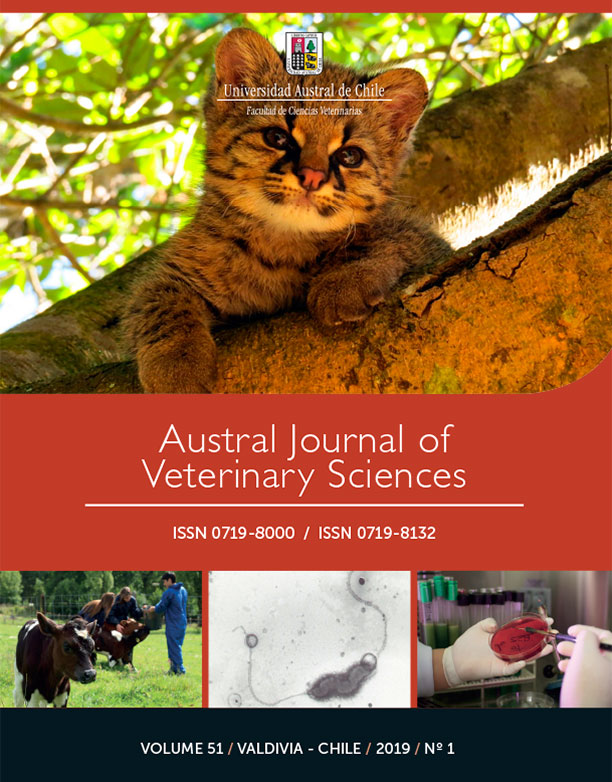Differentiation and multipotential characteristics of mesenchymal stem cells derived from adipose tissue of an endangered wild cat (Leopardus guigna)
Main Article Content
Abstract
Adipose tissue derived mesenchymal stem cells (AMSCs) had been isolated and used for cell therapy in domestic cats. For wild cats, the isolation of AMSCs has only been reported in the black-footed cat (Felis nigripes). AMSCs obtained from wild cats may be useful to treat injuries of endangered cat species that remain in captivity or arrive at wildlife rehabilitation centers. Additionally, AMSCs might allow improvement of cloning techniques or assist in derivation of induced pluripotent stem cells. Endangered wild cats such as the guigna (Leopardus guigna), an endemic and endangered species from Chile and Argentina, might benefit greatly from the development of novel treatments or techniques that can be applied for its conservation. The objective of this study was to characterise putative AMSCs from guigna in terms of their main biological attributes, particularly, growth kinetics, differentiation ability and surface marker expression. Results obtained from this characterisation were compared with AMSCs isolated from domestic cats. AMSCs were isolated from peritoneal adipose tissue of female cats and subcutaneous tissue from a female guigna. Migration potential, colony-forming unit assay, mesodermal differentiation and surface marker expression (CD45, CD44, CD90, MHCI and MHCII) were evaluated. Domestic cat and guigna AMSCs displayed similar growth properties in culture. Both AMSC types showed mesodermal differentiation potential, in vitro homing potential and similar surface marker expression. These results indicate that AMSCs from subcutaneous tissue of guigna could have potential use as regenerative treatment for this species and might be considered for use in other biotechnological applications.

